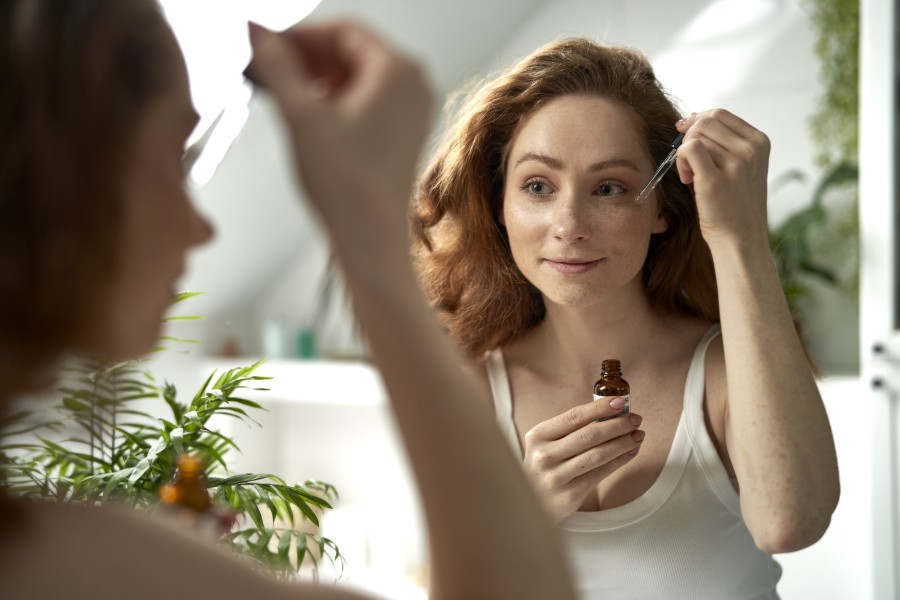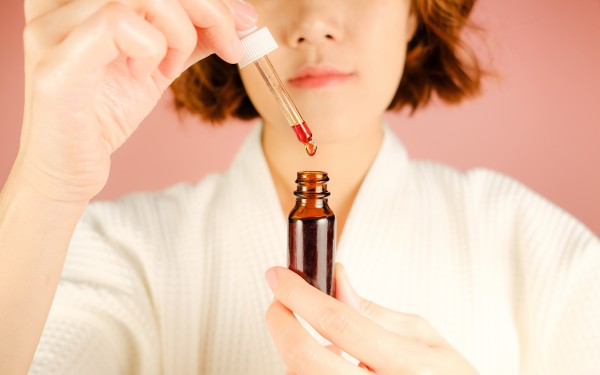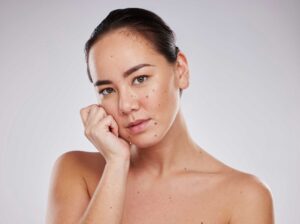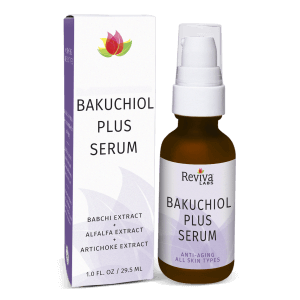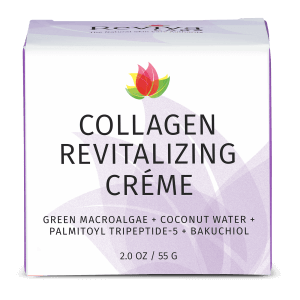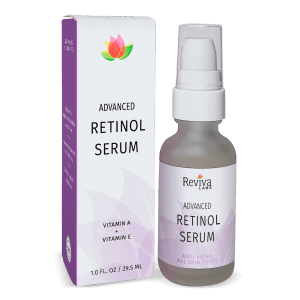Clean Beauty, Ingredients, Natural, Reviva Labs, Skin Care
The Benefits of Bakuchiol for Sensitive Skin
Sensitive skin types often face a lot of challenges when it comes to choosing the right skincare products. The quest for a potent, yet gentle ingredient that can address common aging skin issues like fine lines and wrinkles, and hyperpigmentation, often leads to the discovery of Retinol. However, Retinol, despite its proven benefits, is notorious for its harsh side effects, such as dryness, peeling, and sun sensitivity. It’s no surprise then that the skincare industry has been searching for a gentler, natural alternative. The answer, it seems, is Bakuchiol – as we’ve written about already.
What is Bakuchiol?
Bakuchiol (pronounced buh-koo-chee-owl) is a plant-based compound derived from the seeds of Psoralea corylifolia, a plant native to India. This ingredient has been used for many years in traditional Indian Ayurvedic and Chinese medicine. It is now being hailed as a potential alternative to retinoids, especially for individuals with sensitive skin.
Bakuchiol shares similar benefits with Retinol, such as reducing the appearance of fine lines and wrinkles, improving skin firmness and elasticity, and reducing hyperpigmentation. However, unlike Retinol, Bakuchiol is less likely to cause irritation, making it a more suitable choice for individuals with sensitive skin.
Bakuchiol vs. Retinol: The Key Differences
While Bakuchiol has been compared to Retinol due to their similar benefits, it’s important to understand that these two ingredients are fundamentally different. Retinol, a type of retinoid, is a derivative of Vitamin A, which has been extensively studied and is well-known for its anti-aging benefits. On the other hand, Bakuchiol is a 100% natural active ingredient extracted from the babchi seeds (Psoralea corylifolia plant).
Despite these differences, Bakuchiol has been found to stimulate the same cellular pathways as Retinol, providing similar benefits without the associated irritation. This makes Bakuchiol a promising alternative for those who are intolerant to Retinol or prefer a more natural skincare routine.
The Science Behind Bakuchiol
Numerous studies have been conducted to investigate the potential benefits of Bakuchiol. For instance, a randomized, double-blind study found that a 0.5% Bakuchiol cream used for 12 weeks was as effective in decreasing wrinkles and hyperpigmentation as a 0.5% Retinol cream, but with fewer side effects such as peeling and stinging.
Another study found that Bakuchiol could stimulate collagen-producing receptors in the skin, just like Retinol, but with less risk of side effects. This is significant because collagen production decreases with age, leading to loss of skin elasticity and the appearance of fine lines and wrinkles.
Potential Benefits of Bakuchiol for Skin
Apart from its anti-aging properties, Bakuchiol has also been found to have other potential benefits for the skin:
Increases Cell Turnover
Just like Retinol, Bakuchiol can stimulate cell turnover, which means it helps your skin shed dead and damaged cells faster, revealing a brighter, more youthful complexion.
Improves Sun-Damaged Skin
Bakuchiol has shown promising results in helping to repair sun-damaged skin. In a 2019 study, it was found to be as effective as Retinol in reversing the effects of photoaging, but with less peeling, dryness, and scaling.
Stimulates Collagen Production
A 2014 study revealed that Bakuchiol can stimulate collagen production, enhancing types I, III, and IV collagen, which are crucial for maintaining the skin’s elasticity and firmness.
Reduces Fine Lines & Wrinkles
Bakuchiol has been found to be effective in reducing the appearance of fine lines and wrinkles, making it a desirable ingredient for anti-aging skincare products.
May Help Treat Acne
Bakuchiol’s antibacterial properties may also be beneficial for acne-prone skin. It may help reduce the occurrence of breakouts and improve the skin’s overall appearance. However, it’s worth noting that more research is needed to fully understand how Bakuchiol compares with stronger retinoids in treating acne.
How to Use Bakuchiol
Bakuchiol is typically sold in the form of serums and creams. It can be used both in the morning and at night, unlike Retinol, which is usually recommended for nighttime use only due to its photosensitivity. Bakuchiol can be used once or twice a day, depending on your skin’s tolerance and needs. It can also be used alongside other actives, including Retinol, without causing irritation.
One of the best things about Bakuchiol is that it’s a relatively low-risk ingredient. It’s not known to cause skin irritation or increase sensitivity and can be paired with many other skincare ingredients. However, as with all skincare products, it’s recommended to do a patch test before applying it to your entire face.
The Verdict: Is Bakuchiol Worth Trying?
Given the available research and the potential benefits of Bakuchiol, it certainly seems like a promising alternative to Retinol, especially for individuals with sensitive skin. However, it’s important to remember that while Bakuchiol has shown similar benefits to Retinol in studies, it is not the exact equivalent.
Therefore, whether you should switch to Bakuchiol or stick with Retinol largely depends on your skin’s needs and tolerance. If you’re already using Retinol and are happy with the results, there may be no need to switch. However, if you’re experiencing irritation from Retinol or are looking for a natural alternative, Bakuchiol might be worth a try.
Final Thoughts
While the research on Bakuchiol is still relatively limited compared to Retinol, the available studies suggest that it can offer significant benefits for the skin. It appears to be a promising alternative for those who are intolerant to Retinol or prefer a more natural approach to skincare.
However, as with any skincare product, it’s important to use it consistently and give it time to see results. It’s also recommended to consult with a skincare professional or dermatologist before incorporating new ingredients into your regimen, especially if you have sensitive skin or specific skin concerns.
With its potential benefits and gentle nature, Bakuchiol certainly seems like a worthy contender in the realm of skincare ingredients. It might just be the ingredient you’ve been looking for to achieve healthier, more youthful-looking skin.



